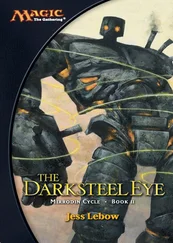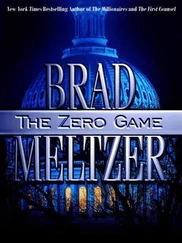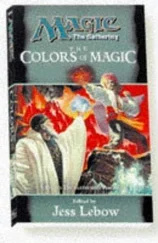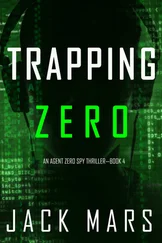There was a light knock at the door. “Housekeeping.”
Remy looked at the clock. It was 9:45. “Can you come back later?”
“Chure,” the man said. “I comb back.”
Remy padded off to the shower and after a minute she joined him and soaped him into making love, and when they were done they went back to bed.
It was two in the afternoon before they made it out of the hotel room. They had gyros at a little Greek stand that April said reminded her of her father’s cooking. They bought more new clothes – April got a tiny denim skirt and high boots, and she even talked Remy into loosening up and he got a shirt with wild cuffs and jeans with manufactured rips in the thighs, and when he said he felt stupid in them, she took him to a bar and made him down three whiskeys in quick succession and, he was forced to admit, he didn’t feel stupid any longer.
“Where you folks from?” asked the female bartender.
“British Columbia,” answered April. “A little town in the Rockies at the foot of this glacier. We hike up and carry buckets of ice down for our drinking water. There’s no electricity or phone service and Dustin here has to cut logs for us to burn in our woodstove to cook and keep us warm.”
“Maggie makes all our clothes,” Remy said. “We eat only roots. In the summer we’re always naked. I have a pet moose.”
“Wow,” the bartender said. “How’d you end up there?”
“Dustin was a draft dodger,” April said. “Conscientious objector. He moved up to Canada and I went and joined him. Fucking government, you know? We just got so sick of America we couldn’t take it any more. At some point, a place loses enough of itself that you have no choice but to abandon it.” She leaned in as if sharing a secret. “And frankly, I think it’s gotten worse.”
“Ain’t that the truth,” the bartender said as she loaded glasses in the dishwasher. But then she looked up at the couple and Remy could see that she was calculating their ages.
“You went up there to avoid serving in Vietnam ?” the bartender asked.
“No,” April said. “Panama.”
“Oh,” she said. “Sure.”
On the advice of the bartender, they took the train to the baseball stadium and walked to a nearby pier, where they found a man with striking gray beard renting kayaks and wetsuits from a huge shipping container. The man asked if they had experience with sea kayaks.
“Not specifically,” April said, “but I was a river guide in the Grand Canyon the summer after I got out of the Peace Corps, and Toody here rowed crew at Princeton.”
“JV,” he said.
“Still,” the kayak guy said, “you should have no trouble.”
They set out awkwardly from the pier, where the water was still, and quickly figured out the balance required. Remy loved the way the edge of his paddle disappeared in the dark water and the way he could thrust the boat forward, the muscles in his arms and shoulders burning from the work. They developed a quick rhythm, April in front, digging with her paddle, her little shoulders beginning to quake with the effort, and when Remy tried to slow down, for her sake, she just pushed harder, and so he did too, their leans and pushes working together until they got going so fast that it felt as if they were carving the water, as if their wake might go for miles, across the bay to the rest of the world. And only then did April stop and look around, at the diffuse clouds battered by light blue sky.
“Why did you ask me about Derek?” she said without turning.
“I don’t know,” he said.
“He was from here,” she said. “From San Francisco. Did you know that?”
“I don’t know,” he said.
“I’m sorry,” she said. “Maybe it was wrong to come here. But I haven’t been thinking about him… if that’s what you’re wondering.”
“I’m not. It’s fine.”
She didn’t say anything else. They drifted around the point and out into the heart of the bay, into heavier chop, the spray stinging their eyes as the wind pushed them toward deeper water and the shadows of sailboats glided past, bending on the waves like shimmering apparitions.
“Goddamn it,” she said.
IN DREAMS, at least in this dream, Remy’s eyesight was perfect, the world clear and crisp and devoid of the static that he’d grown accustomed to. And even asleep, he noted to himself that he hadn’t been dreaming very much since…
He looked around, amazed by the clarity and the quiet of everything he saw. He was standing outside Edgar’s old primary school, waiting for the boy to get out of school, watching the stream of familiar faces as they came out of the building: Edgar’s old babysitter, followed by Guterak, and then Billy Joel, who became the gyro guy who used to set up outside Midtown and then the gyro guy from San Francisco and finally April’s father, who stood shaking his head disapprovingly. But while the buildings and trees and everything within his vision was clear, when he looked up Remy could see flashers and floaters in the sky, which was a gray slate, clouds of ash and dust flowing overhead like a river of debris, and when Remy looked down, the flecks came down to the world, too. Edgar’s school had become 1 Police Plaza – police headquarters – and Remy was standing outside the barricade as cops ran out of 1PP in a panic, and now Remy was terrified for Edgar, who must still be inside. He could hear someone crying and then Remy was jerked awake, sat up and opened his eyes. April was sitting at the end of the bed, still wearing the little denim skirt, but nothing else. She was sobbing, her eyes dark, wet swaths worn along her cheeks. Remy stirred to come toward her but she held up her hand to keep him from coming any closer.
“I went along with everything, didn’t I?” she asked. “We were having a good time, right? And even when you acted all crazy and paranoid, I just pretended it was normal.”
“April-”
“But then you had to ask about Derek.”
“I’m sorry,” he said.
She turned. “If I tell you… everything, will you promise you’ll never ask about it again? Promise that we’ll never have to talk about it.”
“Okay,” Remy said. “I’ll try.”
She stood and walked to the window, opened the curtain and looked out on the dark street. He could see the glow from the streetlights on her pale skin like a halo.
“We talked all that weekend and we went to dinner that Monday night,” she said to the window, “and I let him spend the night… and he even went to work Tuesday in the same clothes. He thought that was so funny… and it felt so natural, like before he left. I kissed him goodbye at the door of our apartment. And I think that’s the first time I really allowed myself to realize how much I missed him, and to think that we might be back where we were.” She turned back to face Remy and it reminded him of the way she’d kept paddling the kayak, her shoulders straining with the effort. “It was after Derek walked out the door that I saw his cell phone on the bookshelf, with the message light blinking. So I listened-”
“The woman from his office,” Remy said.
“March.” She spit the name as if it had been caught in her throat, her voice cracking. April turned away again and seemed to realize for the first time that she was naked above the waist. She pulled a towel off the floor and wrapped it around her shoulders. “March was the woman he-”
“Ah Jesus,” Remy said.
April smiled sickly. “I had talked to her on Monday… and I told her that Derek was coming over… that we were thinking of reconciling. She was so quiet. And I thought-” She laughed bitterly. “I thought she was just worried about me, worried that I would get hurt. So I told her not to worry about it, that Derek was a different man. And that I knew what I was doing.”
Читать дальше












